
In the fast-moving landscape of 2025, the choice between buying vs renting a home in India has become more important than ever. With property prices skyrocketing in major cities, home loan interest rates fluctuating, and economic conditions shifting, many Indians find themselves wrestling with the classic dilemma: is it better to buy a home or rent?
The debate around Buying vs Renting a Home in 2025 goes beyond just financial aspects—it also touches lifestyle, flexibility, and long-term security. As the market evolves, this decision has become one of the biggest financial choices for individuals and families across the country.
This decision goes beyond just finances; it also affects your lifestyle, long-term security, and potential for building wealth. Whether you’re a young professional looking for the flexibility of renting or a family in search of stability, grabbing the details is essential.
The real estate market in India is thriving in 2025, fueled by high demand and infrastructure development. Average home prices are expected to climb by 6.5% this year, with cities like Kolkata leading the charge at a remarkable 29% growth in FY25.
Rental prices are stabilizing too, with gross rental yields sitting at 4.84%. While inflation is low at around 2.1% in mid-2025, forecasts suggest it could rise to 4.2% annually.
Home loan rates start at 7.35% per annum, making it easier to borrow. This easy guide will help you navigate the buying vs renting debate in 2025, empowering you to make a well-informed decision.
We’ll explore costs, hidden fees, the impact of inflation, and more, including handy tools like a rent vs buy home calculator to help you ease the number better. Because the question that still lies in the mind of the people is, is it better to buy a home or rent it
1.What’s the Cost Difference Between Renting and Buying?

The debate between buying vs renting home in 2025 often boils down to the costs involved, both upfront and ongoing. Renting typically has fewer barriers to entry compared to purchasing, which usually demands a heavy initial investment.
When it comes to buying, you can expect to put down about 20% of the property’s price. In 2025, home prices in top cities have skyrocketed. For instance, a 2BHK in Bengaluru now ranges from ₹1 to ₹1.5 crore, reflecting a 15% increase from the previous year.
In Mumbai, premium properties are priced between ₹2 and ₹3 crore, while more budget-friendly areas like Pune see prices between ₹80 lakh and ₹1.2 crore. If you were to take out a ₹1 crore loan at an 8% interest rate over 20 years, your monthly EMIs would be around ₹83,000.
On the flip side, renting involves monthly payments along with a security deposit that can be anywhere from two to ten months rent. For a two-bedroom apartment, the average rent in major cities falls between ₹20,000 and ₹60,000. In Delhi, you might pay between ₹25,000 and ₹50,000, while in Bengaluru, it ranges from ₹30,000 to ₹45,000, and in Hyderabad, it’s about ₹20,000 to ₹35,000. Although rents can rise by 5–10% each year, where you won’t be building any equity.
You can check a few options for buying in Bhubaneswar with the best delivery of property.
2.What Are the Hidden Costs of Buying & Renting a Home in India?
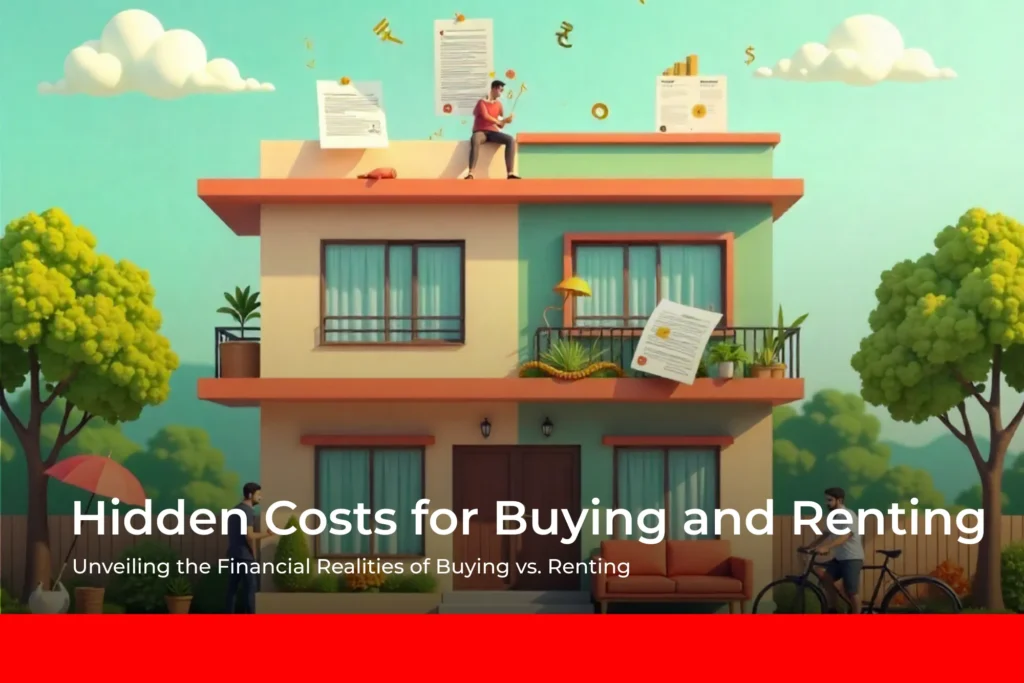
Unexpected Expenses of Purchase:
- 4–7% of the property value is required for stamp duty and registration for example, ₹4–7 lakh on a ₹1 crore residence, don’t you think it’s quite on the high side ?
- GST at 5% & 1% for affordable housing on under-construction projects.
- 0.5–1% of the loan amount which is ₹50,000–₹1 lakh is the loan processing fee.
- Monthly maintenance and society fees range from ₹2 to ₹5 per square foot, plus a one-time sinking fund.
- City-specific property taxes range from ₹5,000 to ₹50,000 per year.
- Basic furnishings and interior design are ₹5–10 lakh.
- Brokerage and legal fees are 1% to 2% each.
Unexpected Renting Costs:
- Brokerage per month for rent is almost around ₹20,000 to ₹50,000.
- Two to ten months rent, usually interest-free, is the security deposit.
- 5–10% for annual hikes, plus renewal fees.
- Maintenance is a major need where minor repairs are covered by the society and etc
- Moving expenses range from ₹10,000 to ₹30,000 every shift.
- Opportunity cost seeks flexibility as money for investment sounds well but there is no asset building.
| Buying a Home | Renting a Home |
| Stamp Duty & Registration: 4–7% of property value (₹4–7 lakh on ₹1 Cr) | Security Deposit: 2–10 months’ rent, usually interest-free |
| GST on Under-Construction Homes: 5% (1% for affordable housing) | Annual Rent Hikes: 5–10% per year, plus renewal charges |
| Loan Processing Fees: 0.5–1% of loan (₹50,000–₹1 lakh) | Brokerage Charges: ₹20,000–₹50,000 while moving in/out |
| Maintenance & Sinking Fund: ₹2–5 per sq.ft. monthly + one-time fund | Maintenance Costs: Minor repairs/maintenance borne by tenant |
| Property Tax: ₹5,000–₹50,000 annually | Moving Costs: ₹10,000–₹30,000 per relocation |
| Furnishing & Interiors: ₹5–10 lakh (basic setup) | Furnishing Costs: May need to rent/replace furniture & appliances |
| Brokerage & Legal Fees: 1–2% of property value | Opportunity Cost: Flexibility but no equity or asset building |
3. Can Rent Be More Expensive Than Home Loan EMIs?
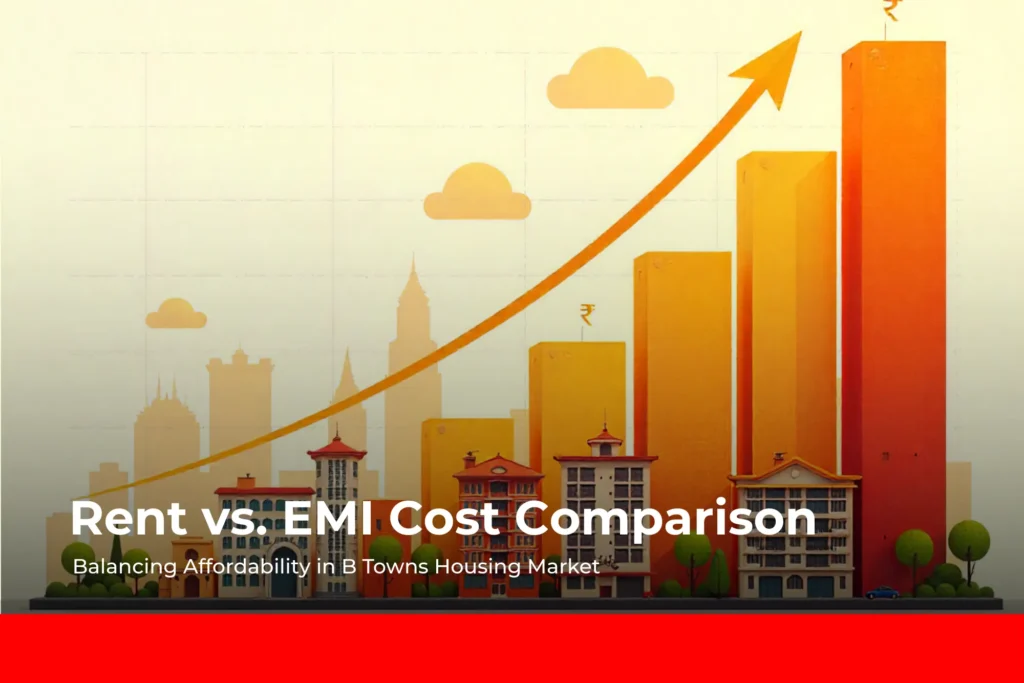
When we talk in the context of buying vs renting home in 2025. In many cases, especially when looking ahead to the market in 2025, the monthly payments for a 20-year loan of ₹80 lakh, with interest rates ranging from 7.35% to 8.75%, fall between ₹64,000 and ₹70,000.
In more upscale neighborhoods, you’ll often find that rents are even steeper—like ₹75,000 for an apartment in Mumbai.
In high-demand areas, rent can actually surpass the cost of EMIs, as we’ve seen in Bengaluru, where some neighborhoods experienced a 15% increase in rent quarter over quarter.
While rent might seem more affordable in the short term (say, over one to three years), buying a home tends to be the smarter choice in the long run because of the equity you build. Just remember to factor in down payments and those sneaky hidden costs.
If you want to get a clearer picture, try using a rent vs. buy house calculator: plug in ₹50,000 for rent and ₹60,000 for EMIs, and typically, buying pays off in about five to seven years.
4. How Does Inflation Affect Buying vs Renting?
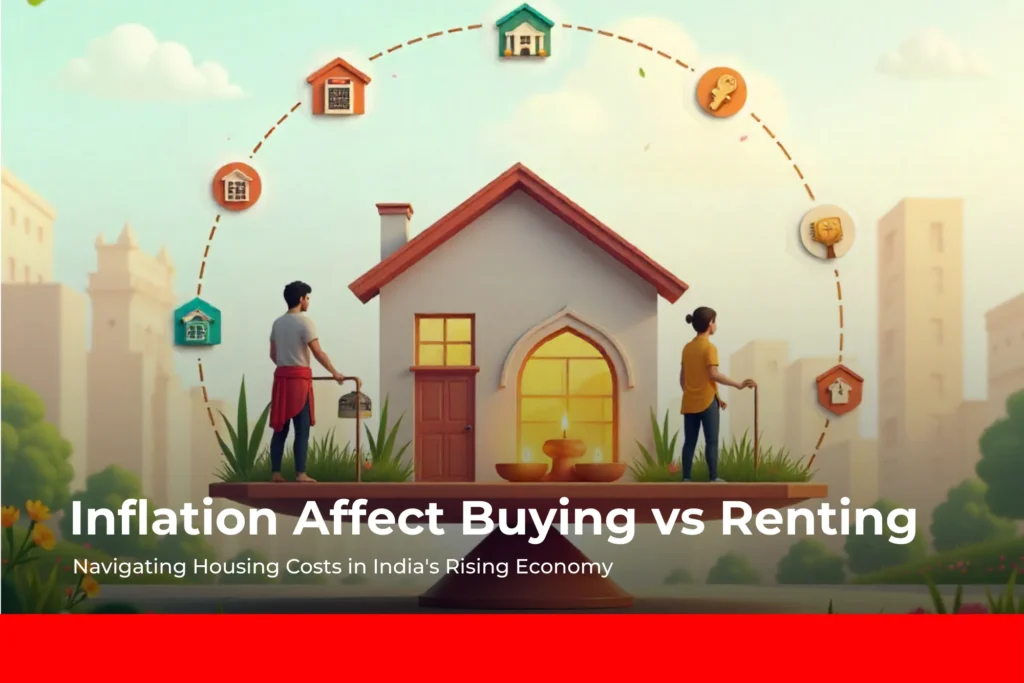
Both options will feel the effects of the projected 4.2% inflation in 2025, which is actually lower than what we’ve seen in previous years. When you buy property, you’re creating real wealth because real estate tends to appreciate faster than inflation (6.5% compared to 4.2%).
Over time, those fixed EMIs become “cheaper” as your income typically rises with inflation (think 5–7% raises). However, if inflation keeps climbing, we might see interest rates go up, which would lead to higher EMIs.
On the rental side, rents are expected to rise by 5–9% each year, keeping pace with inflation. This can squeeze your purchasing power. Owning a home is generally a better way to protect against inflation than renting.
Renting might offer some stability during 2025’s lower inflation rate (2.1% in June), but buying a home can be a safeguard against future hikes.
5. Which Is More Affordable in 2025, Buying or Renting?
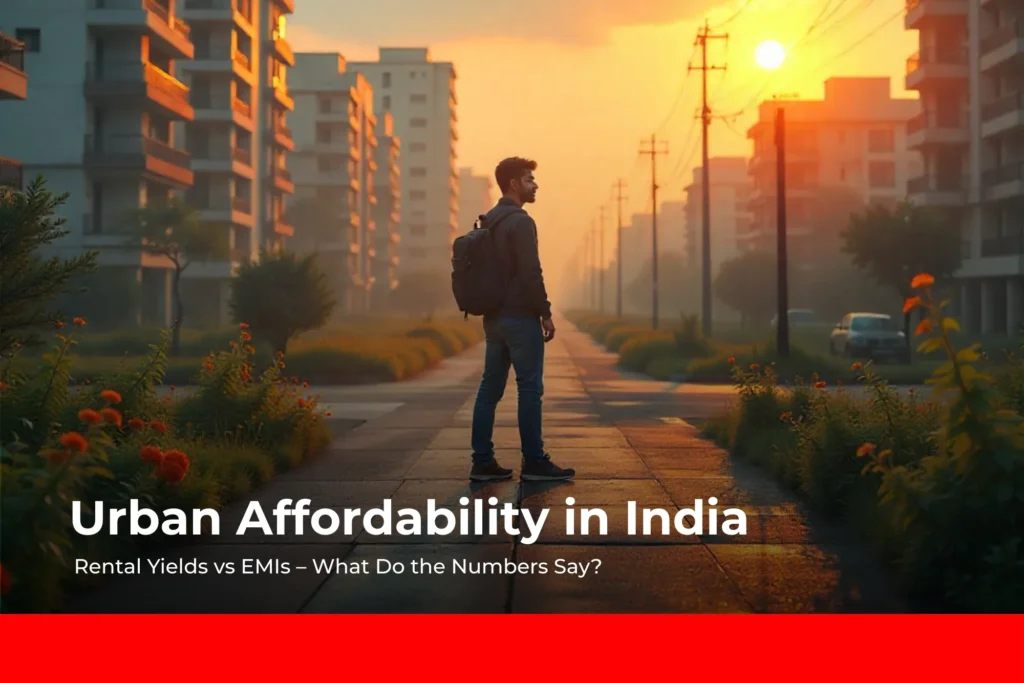
When it comes to affordability, it really depends on the location. As we know in buying vs renting home in 2025 is up-and-coming cities like Hyderabad or Pune, where rental yields hover around 5 — 5.5% and prices have seen a significant jump, is likely to be a smarter move in 2025 for those looking at a long-term investment (5+ years). With rental returns sitting at 4.84%, the value of your investment can grow more rapidly.
On the other hand, if you’re considering a temporary situation, renting might be the way to go, especially since sales dropped by 20% in Q2 due to rising costs. For many middle-class Indians, the monthly EMIs (7.5-8.7%) are pretty much on par with rent.
Research shows that in Bengaluru, you can expect to break even on a purchase in about 4–8 years. Overall, buying is often favored for the stability it offers. Will know even better in the forward read in rent vs buy home calculator to get a better breakdown.
6. Pros and Cons of Buying a Home.

Advantages:
- Building and appreciating assets.
- Tax advantages (interest deduction of ₹2 lakh).
- Both adaptability and stability.
- Protect yourself from inflation.
Cons:
- High initial expenses.
- Less freedom to switch jobs.
- Accountability for maintenance.
- Risk to the market if prices decline.
| Pros ✅ | Cons ❌ |
|---|---|
| Builds and appreciates assets | High initial expenses |
| Tax advantages (interest deduction of ₹2 lakh) | Less freedom to switch jobs/relocate |
| Offers long-term stability and adaptability | Full responsibility for maintenance |
| Protects against inflation | Market risks if property prices decline |
7. Pros and Cons of Renting a Home.
Advantages:
- The ability to move.
- Reduced starting expenses.
- No trouble with upkeep.
- Put your cash into stocks that yield 12–15% returns.
Cons:
- No equity.
- Rents are going up.
- Limitations imposed by the landlord.
- Eviction uncertainty.
| Pros ✅ | Cons ❌ |
| Flexibility — easy to move | No equity or asset building |
| Lower initial expenses | Rent increases over time |
| No responsibility for upkeep/maintenance | Restrictions imposed by landlord |
| Extra cash can be invested in higher-return options (12–15%) | Risk of eviction or lease non-renewal |
8. Factors to Consider When Deciding Between Buying and Renting.
- Financial Stability: Is a 20% down payment within your means?
- Job Mobility: Moving about a lot? Pay the rent.
- Market Trends: The 6.5% price increase in 2025 encourages purchasing.
- Family Requirements: Expanding family? Make a space-saving purchase.
- Investment options include investing differential and renting.
- Location: Because of the high cost of renting, metro areas like Mumbai tend to favor this option.
| Factor | Buying a Home | Renting a Home |
| Financial Stability | Requires ~20% down payment upfront | Lower upfront cost, just deposit & rent |
| Job Mobility | Less flexible if you relocate often | Easier to move frequently |
| Market Trends (2025) | Rising prices (6.5% growth) favor buying | May miss out on property appreciation |
| Family Requirements | Suitable for stability & space needs | Temporary solution for smaller families |
| Investment Options | Builds real estate assets | Frees cash for alternative investments |
| Location | Buying harder in expensive metros like Mumbai | Renting more practical in costly cities |
9. Rent vs Buy Home Calculator: How to Use It.
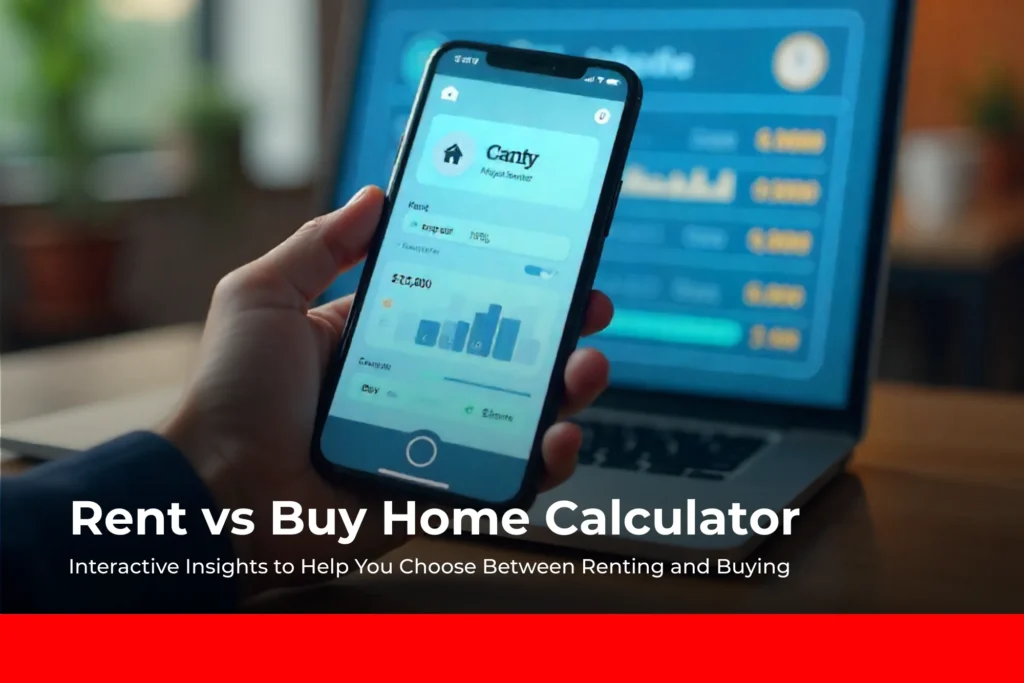
Buying vs renting home in 2025 where the choice is made easier with a rent vs. buy home calculator. Home price, rent, loan rate, appreciation, and tenure are all taken into account by programs like Fi.Money or the Excel version of AssetYogi. Rent vs Buy home calculator is the finest way to get the breakdown of the future expenditure.
Actions to take:
- Enter the price of the house (₹1 crore).
- 20% down payment.
- 8% is the loan rate.
- Equivalent to rent (₹40,000).
- Gratitude (6%).
- 4% inflation.
*Output: If you stay put, buying saves ₹20–30 lakh over ten years.
10. FAQ
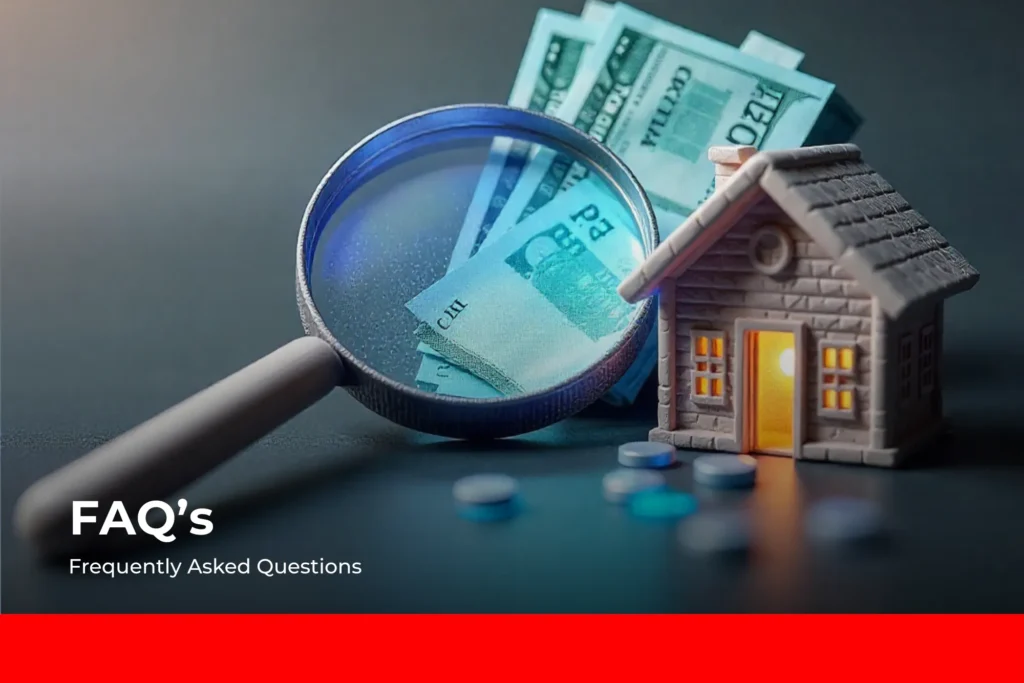
Q: Is it better to buy a home or rent in 2025 India?
A: Buy for long-term; rent for flexibility. Depends on the city and finances.
Q: How do I use a rent vs buy home calculator?
A: Input costs, rates, and tenure for a comparison.
Q: What’s the average home loan rate in 2025?
A: 7.35-8.75% p.a.
Q: Does inflation make buying better?
A: Yes, as property appreciates more.
Q: Are there tax benefits for buying?
A: Yes, deductions on interest and principal.










Leave a Reply